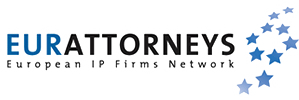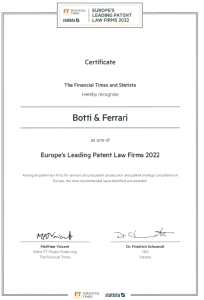
Dear Sirs,
as you are aware, on 1 June 2023 the system of the Unitary Patent Court (UPC)/European Patent with unitary effect (EP-EU) entered into force.
Thanks to this new system, patent proprietors can choose to file a request for unitary effect and obtain a Unitary Patent providing uniform protection in the EU Member States having ratified the UPC Agreement, which are 17+1 EU countries at present (Romania ratifies the UPC Agreement with effect from 1 September 2024).
After one year, the Court of First Instance has received a total number of 373 cases: 134 infringement actions, 165 counterclaims for revocation (originating from 63 individual infringement actions), 32 applications for provisional measures, preserving evidence and orders for inspection (see the complete leaflet available at the link below).
The first orders of UPC to preserve evidence or “saisie” (R. 192 RoP of UPC) are in France, Belgium and Italy, Milan being the most active (an analogue of saise is “descrizione giudiziaria” which is a very common means of proof of the infringement and violation of a patent right in Italy). Paris central division has received 35 revocation actions. 4 revocation actions have been filed with Munich central division.
The Court of Appeal has received a total number of 63 appeals.
To conclude we have the pleasure to inform you that the Milan (IT) section of the central division of the Unified Patent Court (UPC) officially opened its doors on 27 June 2024. Milan section of the central division will handle cases pertaining to IPC class A (Human Necessities) without Supplementary Protection Certificates.
We will provide you with any relevant updates regarding this matter in due course.
For further information, the complete leaflet can be downloaded HERE.
Botti & Ferrari SpA






